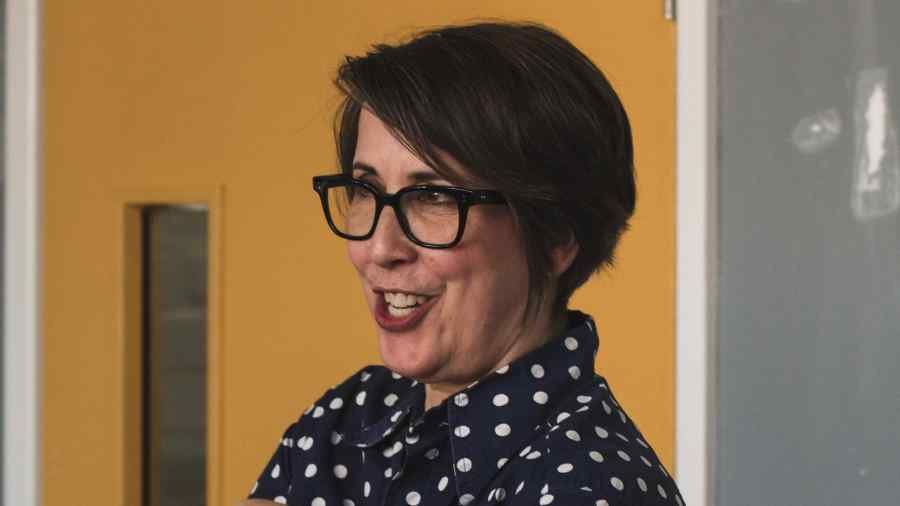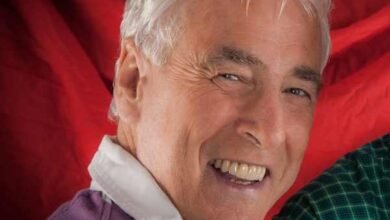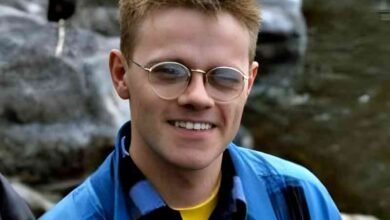Michele Winstanley: A Multifaceted Creative Force in Acting, Writing and Advocacy

The name Michele Winstanley may first remind audiences of familiar British television from the 1980s and 1990s, yet her story extends far beyond acting. She has excelled as a playwright, artist, and interpreter, with a career defined by social awareness, compassion, and creative reinvention. Michele Winstanley’s journey from television screens to theatre stages and advocacy projects reflects a woman who continually evolves while staying true to her artistic roots and humanitarian values.
Early Life and Background
Michele Winstanley was born on 26 January 1964 in Eindhoven, the Netherlands, to British parents and later raised in Islington, North London. Her father, Paul Winstanley, was a writer and political activist who volunteered aboard Greenpeace’s ship Sirius, while her mother, Maureen Bocking, worked as an artist and art therapist. Growing up in such a creative and socially active household shaped Michele’s curiosity, independence, and drive to pursue meaningful work.
At the age of ten, she began attending the Anna Scher Theatre in Islington, a community drama school famous for producing some of Britain’s finest working-class actors. The emphasis on improvisation and emotional truth at Anna Scher’s school deeply influenced Michele’s approach to performance. She left formal schooling at sixteen and began working as a professional actor, bringing her natural charm and authenticity to every role.
Acting Career in Television and Film
Throughout the 1980s and 1990s, Michele Winstanley became a recognisable figure on British television. She appeared in several beloved series that defined an era of British entertainment.
Her breakout came in 1983 when she played Karen the barmaid in the iconic sitcom Only Fools and Horses. This appearance placed her alongside some of the most beloved characters in British comedy history. Around the same time, she also appeared in Shine On Harvey Moon, where she portrayed Janice, a young woman navigating post-war London life. Her naturalistic acting style and London upbringing allowed her to connect with viewers on a genuine level.
Michele’s talent and versatility soon led to guest roles in many other popular television programmes, including Birds of a Feather, Minder, A Touch of Frost, The Bill, Casualty, Silent Witness, Between the Lines, Inspector Morse, and Men Behaving Badly. Each role showcased her ability to bring realism and emotion to diverse characters, whether in comedy, crime, or drama.
Her film career was equally notable. She appeared in Party Party (1983) as Christine, Fords on Water (1983) as Anne, and Staggered (1994) as Tina, alongside Martin Clunes. Later credits included Straight to Hell Returns and The Kindness of Strangers. Her screen presence blended warmth and depth, allowing her to transition smoothly between film and television.
A Shift Towards Writing and Advocacy
By the early 1990s, Michele Winstanley began exploring new creative territories. She started volunteering at the London Zoo, specifically in the ape house, where she developed a deep connection with the primates she cared for. This experience profoundly changed her outlook on humanity’s relationship with animals.
Her compassion led her to work with the International Primate Protection League in the United Kingdom, where she initiated a campaign called “Don’t Say Cheese with Chimpanzees.” The campaign sought to end the cruel practice of using baby chimpanzees as tourist photo props in Spain and Tenerife. Through this advocacy work, Michele discovered a new way to express her voice—not only through performance but through storytelling and activism.
Inspired by her experiences at the zoo, Michele wrote her first full-length play, Keepers. The story drew directly from her observations of the bond between humans and captive animals, raising ethical questions about captivity, empathy, and freedom. The play was later produced by Hampstead Theatre, a respected London venue known for supporting emerging playwrights. This project marked Michele’s successful transition from acting to writing and advocacy.
Theatre and Playwriting
Following the success of Keepers, Michele continued writing and developing her voice as a playwright. She later received a commission from Soho Theatre for a play titled Edging Gently Forwards, a reflective and emotional work exploring personal growth, loss, and renewal. Her theatrical style is often grounded in realism but infused with poetic undertones, revealing both her acting background and her deep understanding of human behaviour.
In addition to her own writing, Michele has worked as an associate producer and dramaturg, helping other playwrights refine their scripts. Her hands-on experience as both performer and writer allows her to guide others with empathy and insight. Through workshops and script consultations, she encourages emerging writers to pursue truth and originality rather than formula or commercial trends.
Becoming a British Sign Language Interpreter
One of the most remarkable transformations in Michele Winstanley’s career was her journey into British Sign Language interpreting. Her fascination with sign language began when she met Oscar-winning Deaf actress Marlee Matlin during the filming of Walker many years ago. That encounter left a lasting impression on her, sparking a desire to learn BSL and understand the Deaf community more deeply.
After eleven years of training, Michele became a fully qualified BSL interpreter in 2017. She now specialises in interpreting for medical and antenatal settings, including assisting Deaf parents during childbirth. Her first birth interpretation took place during the height of the COVID-19 lockdown, a challenging yet transformative experience that deepened her appreciation for communication and human connection.
Through this work, Michele helps bridge communication barriers between Deaf and hearing individuals, providing a vital service that aligns with her lifelong passion for empathy and understanding. She is also registered with the National Registers of Communication Professionals working with Deaf and DeafBlind People (NRCPD), reflecting her professionalism and dedication to accessibility.
Personal Philosophy and Creative Vision
Michele Winstanley’s career evolution reflects a powerful philosophy: that art and empathy are inseparable. Whether performing on screen, writing for the stage, or interpreting for Deaf clients, her work always centres around communication, compassion, and connection.
She believes creativity should not be confined to one medium. Instead, it should be a continuous process of learning and reinventing oneself. This philosophy is evident in the way she balances her creative pursuits with socially responsible work. Michele often describes her artistic journey as a dialogue between performance and real-world experience—a dynamic exchange that keeps her grounded and inspired.
Her plays, much like her life, explore themes of captivity and freedom, isolation and belonging, language and silence. Having spent years interpreting for others, she understands that every story has multiple layers of meaning, and that silence can often speak louder than words.
Recognition and Influence
While Michele Winstanley may not be a celebrity in the mainstream sense, her influence is quietly enduring. Television enthusiasts still recognise her from classic series such as Only Fools and Horses and Minder. Theatre audiences respect her for her honesty as a writer and the emotional intelligence that shines through her scripts. The Deaf community values her for her commitment to accessible communication and cultural sensitivity.
She represents a generation of artists who evolved with integrity rather than chasing fame. Her work demonstrates that longevity in the arts often comes from adaptability, not popularity. For young creatives, Michele’s journey serves as a reminder that one’s career can have multiple chapters, each offering new ways to contribute meaningfully to society.
Legacy and Continuing Work
Today, Michele continues to combine her creative and humanitarian efforts. She writes, advises, interprets, and performs on occasion. Her lifestyle reflects a balanced harmony between artistic passion and social purpose.
Her legacy lies in the bridges she has built—between humans and animals, between hearing and Deaf communities, between entertainment and advocacy. By refusing to limit herself to one identity, she embodies the spirit of lifelong learning and creative resilience.
As she continues her work, Michele Winstanley remains an example of how art can be both a personal expression and a public service. Her story is one of courage, compassion, and continuous reinvention.
Conclusion
Michele Winstanley’s life and career illuminate the beauty of versatility. From her early days as a London actress to her later years as a playwright and interpreter, she has proven that success is not about staying in the spotlight—it is about staying authentic. She has shown how empathy can fuel creativity, how experience can reshape purpose, and how art can bridge worlds that often seem apart.
In every sense, Michele Winstanley is a testament to the power of human evolution. Her journey continues to inspire actors, writers, and communicators who seek to live creatively and compassionately in equal measure.



